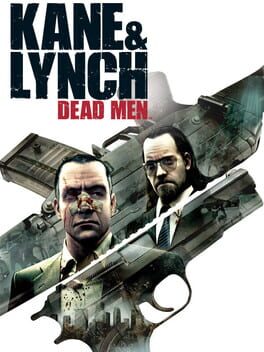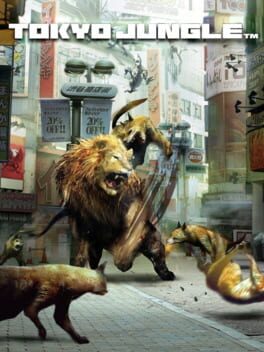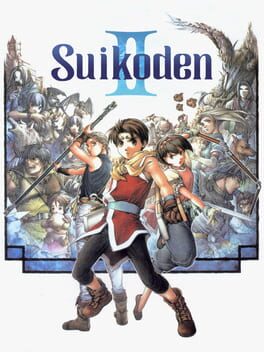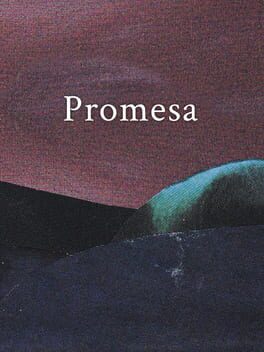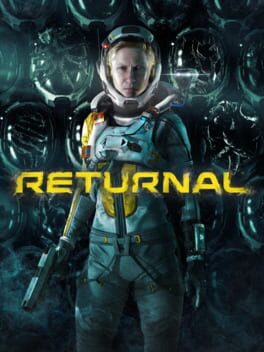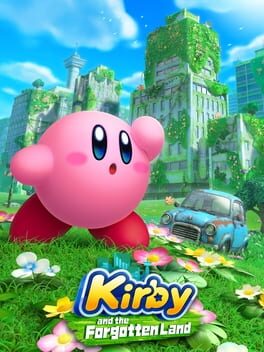sam_gray
A clunky game, like its predecessor, and yet even more confident, experimental, and detail-oriented that complaints about it being "uncomfortable" to play become totally insignificant. The structure is ambitious, to say the least, based around clones and copies; the sense of déjà vu is inherently game-like, the notion of the virtual disconnecting one from reality is incorporated into the game's fabric that is, itself, in an uncanny state of decay. I'm sure the brilliant boss fights, tight environmental design, and disorienting perspective shifts have all been analysed to death by this point, but what a thrill to experience even twenty years on, especially the moment when Kojima disregards the action climax to go full Adam Curtis with the motivation of the "villains". Only the Raiden/Rose dynamic falls short. Roll on Snake Eater.
2015
I really tried with this, and I can see why some find it so charming - the sidequests have an amusing, inventive wit, and the typical life-of-crime, fall & rise set-up is intelligently shaded. But there's also way too much time spent watching cutscenes, and the snippets of gameplay we get aren't quite compelling enough to make it worthwhile. The tactics in the brawls just boiled down to mashing buttons and occasionally using an unlimited supply of healing items. There's no tension to it. And the side bits - karaoke, flirting with the bowling receptionist, Mr. Shakedown - are fine, but heavily compartmentalised, like everything else. I wasn't expecting GTA, but there's a lack of flow here that I found unproductively claustrophobic. Will revisit down the road, maybe.
2019
This isn't entirely the game's fault, which plays well and makes good use of vertical movement, but I'm not particularly into this strain of indie games that posit themselves as aggressively nice - perhaps as a response to years of aggressively nasty AAA titles - at the expense of anything negative that might break the spell. The lower-caps, self-aware dialogue felt cutesy instead of human. Give me more moments like the rain-soaked graveyard, or the perilous journey through the snow, and maybe the self-congratulatory ending might feel less hollow.
Really dug this for a while. The shooting is awkward, but there’s a blunt verisimilitude to the gunfights, an attention to detail with e.g. your teammates giving you ammo when you’re low, or where being revived with adrenaline too frequently leads to an overdose. The game apes Michael Mann better than most, most blatantly with the nightclub shootout - the screaming crowds are a great touch - or the later Heat-inspired getaway on the streets of Tokyo. What it doesn’t attempt to capture is Mann’s romance. There’s no attempt to lend Kane & Lynch’s quest justification of any sort. They’re bad men - in Lynch’s case, bad in a clinically insane kind of way - and the game is at its best when exploring this blackly comedic dynamic, where one tries to rein the other one in but both, predictably, bring out the worst in each other. Unfortunately, the game falls off a cliff at the midway point, turning into an awful guerrilla warfare shooter that’s full of insanely difficult bullshit. But points to its grimy B-movie vibes until then.
So conceptually brilliant it doesn't really require explanation - it distils everything that's good about 30-odd years of Zelda (and Dark Souls, and Shadow of the Colossus, and the Elder Scrolls, etc, etc) and does away with almost everything that's unnecessary. Maybe lacks the weirder edges of Majora's Mask or Twilight Princess, but that's why sequels exist. The barebones story is even rather moving, especially the hunt for memories - it reminded me of something like BS Johnson's The Unfortunates, scattered pieces of a puzzle whose incompleteness is the point. It ends in a place of hope, but acknowledges the sacrifices and failures that paved its way. Which is rare, even for a franchise as thoughtful as this.
2012
The reputation on this one was Japanese and Weird, which is certainly true of a story mode that goes to some crazy places. But it’s the survival mode that best captures Werner Herzog’s view of nature, encouraging "no kinship, no understanding, no mercy". The absurdity of seeing a Pomeranian demolish a gazelle in slow-motion soon gives way to the terror of an empty hunger bar with no food in sight, or being ambushed by a gang of predators, hidden by the cover of rain - with thrumming techno music and stat-boosting challenges further driving the brutal tension of a literal dog-eat-dog world. Its genius lies in the random events and weather changes that discourage any kind of complacency. You must feed, breed, and hide to survive, but most importantly keep moving, as you never know when your section of the city will turn against you. It's clearly the best game ever made about global warming. Buy it while you still can!
1998
This review contains spoilers
The flaws are obvious: 108 characters is just too many for one game to handle without feeling overstuffed, though I appreciate the efforts to make them all distinct, even if some end up as one-dimensional comic relief. I wasn't convinced by the best friend's betrayal, with the subsequent parallel narrative only glimpsed in occasional, underwritten cutscenes. The endings are curiously unsatisfying, too - perhaps all a result of a clumsy translation. And yet the game's appeal still shines through. It's uncommonly direct about politics and the devastation of war, and constantly ties it into the gameplay - hearing e.g. a village you regularly visit for items has been destroyed lends the story an extra degree of weight. The evolving home castle is a marvellous location, too. It's full of asides that deepen our relationship to the characters and the ideology of the main mission, culminating in the moving moment where "reinforcements" in a major battle are simply the vendors and NPCs coming to your aid. Not exactly a challenging game, and not quite as emotionally magnificent as something like Final Fantasy VI, but it shares with that one a precision in its 16-bit cutscene direction, revealing all manner of human detail with the smallest changes to its sprites.
2020
2020
The premise implies a procedural whodunnit, à la Phoenix Wright, but it's actually much stranger than that - it's closer to an open-world collect-a-thon, though one where almost every item is important, a key puzzle piece in an overarching mystery. Or rather several, interlinked mysteries; a multiple homicide and missing person at first, then followed by matters of break-ins, sacrifices, genealogy, demonic possession, fanaticism, and every suspect bearing a secret that may or may not implicate them in all of the above. Combine this with the Pynchonian naming conventions (Kafka Memory, anyone?), the vaporwave soundtrack, and a surfeit of red herrings to add flavour, and you have a very strange game, the type of which I've never really encountered before. Compared to Phoenix Wright, the immediate appeal is the freedom. You can visit the suspects in any order, revisit them with new evidence and testimony to uncover a fresh angle, or just keep exploring a gorgeously designed world map. It uses the uncanny nature of a lifeless game world to tie into its theme of religious hubris - the powerful rich using the powerless poor to create their own fantasy of perfection is given an effective, literal analogue here, and the writing is intelligent enough to trust us to understand this without pressing the point too hard. The main issue is that this all becomes clear within the first half of the game, and because of the player-created structure there isn't the same kind of momentum as a traditional whodunnit - the only tension is whether you can hoover up the last bits of evidence. And the trial is a big disappointment, too, especially given how it set up a difficult situation regarding sympathetic (but not blameless) participants in the crime, then sweeps any complications in character relationships under the rug with a truncated epilogue. Still, one of the most ambitious games of recent times - I can't imagine I'll forget it any time soon.
Starts off strong, with mercenaries in the Middle East, serious digressions on the war economy, and the genetic horror of Metal Gear Solid 2 taken to its logical end point. War machines braying like cows is wonderfully disturbing, and while the nanomachines are in some respects too-easy solutions to deus ex machina, the idea of every soldier and weapon being subjected to the whims of a cloud-based operating system (with no clear corporate owners) is obviously resonant. The balance between gameplay and cutscene shifts heavily towards the latter compared to earlier entries, but I was surprised by how little this bothered me - I treated it like a multimedia project, and the split-screens and ability to move around the cutscene space in briefings felt inspired, especially the (awesome) divided boss fight with Vamp and the Gekkos.
As is often the case with Kojima, though, a degree of sexism emerges, and the backslide from the (mostly brilliant) politics of Snake Eater is dramatic. A secondary character having her top irrationally unbuttoned the whole time soon pales compared to the Beauty and the Beast corps, some of the most ill-conceived characters I’ve ever seen in a game. It’s possible that these repetitive encounters - with a leering camera, skin-tight character designs, and stupid as shit writing - are a conscious protest against being forced to include fan-pleasing boss fights by corporate overlords. I don’t care - it doesn’t work and it’s gross.
But this grossness gets to the heart of the matter, really, which is that this is a game that seems to hate itself. Or at least the part of itself that glorifies war. While the others indulge in plenty of auteurist smuggling, offering nuanced critique of American foreign policy, nuclear warfare, genetics, etc, they are, on their surface level, entertaining - a power fantasy with guns and gadgets. There are more of those here than ever, but the fantasy is gone, Snake a hacking husk whose adventures are more grim and pointless than ever. How else to justify the awkward gunplay that barely bothers with setting up stealth situations, or the self-parodic repetition of past glories? The fact that the fan-despised Raiden is re-introduced as a supernaturally powerful ninja who ends up losing both his arms and holding his sword between his teeth is part and parcel with the camp ludicrousness of the series, and an indicator of something new - a resentment toward player expectation.
This even extends to the game’s hideous look, embracing the bloom-filled browns that now seem typical of the PS3 era. Perhaps it’s more fascinating now than it was at the time as a time capsule of a different era - a turbulent afterbirth of the War on Terror, and a franchise eating its own tale. The final, long cutscenes are true to form: excessive, silly, but also thoughtful and oddly moving. ("Snake had a hard life..." / "This is good, isn't it?") The worst Metal Gear game I’ve played, and still undeniably touched by genius.
As is often the case with Kojima, though, a degree of sexism emerges, and the backslide from the (mostly brilliant) politics of Snake Eater is dramatic. A secondary character having her top irrationally unbuttoned the whole time soon pales compared to the Beauty and the Beast corps, some of the most ill-conceived characters I’ve ever seen in a game. It’s possible that these repetitive encounters - with a leering camera, skin-tight character designs, and stupid as shit writing - are a conscious protest against being forced to include fan-pleasing boss fights by corporate overlords. I don’t care - it doesn’t work and it’s gross.
But this grossness gets to the heart of the matter, really, which is that this is a game that seems to hate itself. Or at least the part of itself that glorifies war. While the others indulge in plenty of auteurist smuggling, offering nuanced critique of American foreign policy, nuclear warfare, genetics, etc, they are, on their surface level, entertaining - a power fantasy with guns and gadgets. There are more of those here than ever, but the fantasy is gone, Snake a hacking husk whose adventures are more grim and pointless than ever. How else to justify the awkward gunplay that barely bothers with setting up stealth situations, or the self-parodic repetition of past glories? The fact that the fan-despised Raiden is re-introduced as a supernaturally powerful ninja who ends up losing both his arms and holding his sword between his teeth is part and parcel with the camp ludicrousness of the series, and an indicator of something new - a resentment toward player expectation.
This even extends to the game’s hideous look, embracing the bloom-filled browns that now seem typical of the PS3 era. Perhaps it’s more fascinating now than it was at the time as a time capsule of a different era - a turbulent afterbirth of the War on Terror, and a franchise eating its own tale. The final, long cutscenes are true to form: excessive, silly, but also thoughtful and oddly moving. ("Snake had a hard life..." / "This is good, isn't it?") The worst Metal Gear game I’ve played, and still undeniably touched by genius.
2021
A roguelike bullet hell-fusion that I blamed at first for having an intense difficulty based on luck. But it’s really about risk management. You could keep exploring for that perfect gun and perk, but what if you run into a difficult enemy that sets back your precious health bar? You could risk a malfunction that handicaps you in a negligible way, but what if it’s terminal? Very demoralising to play for long periods of time, as every death stings - and unlike Dark Souls, there’s no easy route back to a boss, demanding your full concentration on every run. Also a brilliant, complicated system with no wasted parts, rewarding experimentation and attention to detail. Ends weak, and I wish it didn’t even bother with a narrative, with the stilted horror sequences and ultimate reveal that it’s all a dream or about trauma or something taking the bloom off the rose a bit.
2016
In some ways I think this suffers from being Ueda’s most conventional game: the idea is borderline Pixar, there’s a terrible didactic voiceover, and even the score sounds distractingly like Thomas Newman. On the other hand, every bit of frustration and jank is brilliantly incorporated into the game’s design, which takes the most mocked of video game objectives (the escort quest) and takes it to gigantic, spectacular heights, with one of the most convincing companion AIs ever devised. Also found the part where Trico thinks you’re (spoiler) so emotionally affecting I had to stop playing for a while. Which never happens.
2022
Likely the most absorbed I've been in a game in a long time (my playthrough clocked in at around 90 hours), so I might have just been so oversaturated by the end that I'm already underrating an instant classic. It reminded me less of Dark Souls than World of Warcraft, with an amazing variety of distinctive zones and enemies designed to catch you off-guard. Everything that's unbalanced and weird about it works in its favour, creating a world with loose rules designed to be broken - Margit is a barrier that teaches you to explore further, Rahdan teaches you that there's no shame in summoning, Malenia teaches you that life is unfair sometimes and then you die. An uncompromising investment in every one of Miyazaki/Fromsoft's pet themes, obsessions, and mechanics, with a real effort made with secondary characters this time around (Iron Fist Alexander MVP). Also just a bit overfamiliar, with a story so vague that it evaporates to nothingness by the end. I don't play these for narrative reasons, though Dark and Demon Souls had a clear purpose in mind with their downward, rotting trajectories, whereas this - with its huge map, buzzing with life - hardly feels like a world in decline. Still probably the coolest game ever made.
This review contains spoilers
So the greatest video game franchise of all time ends on a bit of a whimper. It’s still 90% of the way there, ditching much of the series’ lunatic theatrics for an addictive gameplay loop where war is a fun business. I like how this, like its predecessors, tries to reinvent the wheel, and while it’s similar to the (brilliant) Peace Walker - proceeding like a television show, with regular small-scale crises and a larger threat only occasionally making itself known - the overall trajectory is very different. The unfinished aspects almost help the game’s structure, as the unsatisfying Skull Face defeat gives way to diminishing returns, paranoia, and boredom, at which point the main character’s slide into villainy seems inevitable. It sometimes gets a bit Spec Ops: The Line with its unsubtle messaging - but I don’t hate that game (war games are inherently pro-military, it’s fair to criticise that) and moments like your base soldiers humming the Peace Walker theme before you shoot them are suitably chill-inducing.
That being said, the ending is terrible. It isn’t woven into the dramatic structure, it just happens - you suddenly replay the tedious hospital sequence with a new cutscene at the end. It’s a shame, because there’s something fascinating there about puppetry and identity and power - all key to the Metal Gear experience. There’s something powerful, too, about Quiet, the silent assassin who falls in love with the doppelgänger of the man she’s supposed to kill, whose silence is revealed as irrefutable proof of that. But the character design (and camera angles) are Kojima at his most openly misogynistic. (Thankfully there’s nothing quite as bad this time as Paz’s vagina bomb.) So 90% of the way there - which, as it turns out, is a pretty good game.
That being said, the ending is terrible. It isn’t woven into the dramatic structure, it just happens - you suddenly replay the tedious hospital sequence with a new cutscene at the end. It’s a shame, because there’s something fascinating there about puppetry and identity and power - all key to the Metal Gear experience. There’s something powerful, too, about Quiet, the silent assassin who falls in love with the doppelgänger of the man she’s supposed to kill, whose silence is revealed as irrefutable proof of that. But the character design (and camera angles) are Kojima at his most openly misogynistic. (Thankfully there’s nothing quite as bad this time as Paz’s vagina bomb.) So 90% of the way there - which, as it turns out, is a pretty good game.
Kirby by way of 3D Mario, replacing scattered power-ups with RPG-lite upgrades, some of which are ludicrously overpowered (the big sword that blocks all damage?) and others being simply, enjoyably ludicrous (a kind of suicide vest, duel-wielding pistols). Reasonably fun and imaginative, even if it rips off Mario Odyssey with the inanimate object possession and incongruously “realistic” setting, and shares that game’s same problem of over-cluttered busyness. Both suffer from the degradation of a corporate brand that once felt strange and singular (Kirby Super Star felt like it had been developed under the influence of LSD) and has now had the edges sanded off to appeal to a broader market. Also Kirby just isn’t as much fun to control as Mario, though he (?) is cuter, and this is the first mainline game in the series I’ve played that doesn’t feel insultingly easy. The boss fights might repeat themselves too much but there’s a care taken with attack variety and telegraphing that (hilariously) evokes Dark Souls, Kirby’s slow-mo dodge being an improbably cool cherry on that particular cake. My favourite in the series is still the golf one (Dream Course) - not sure if that’s controversial...



